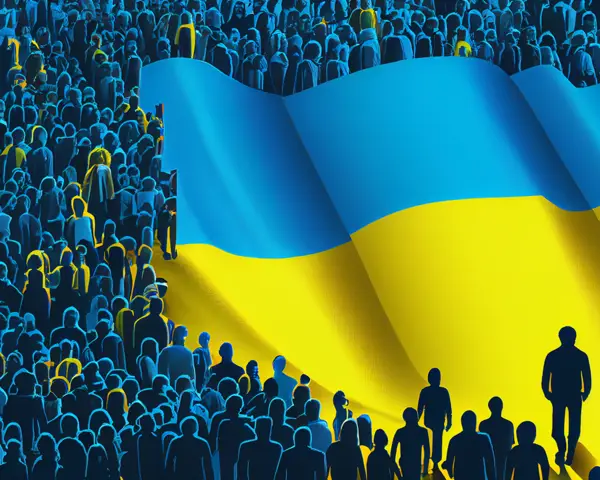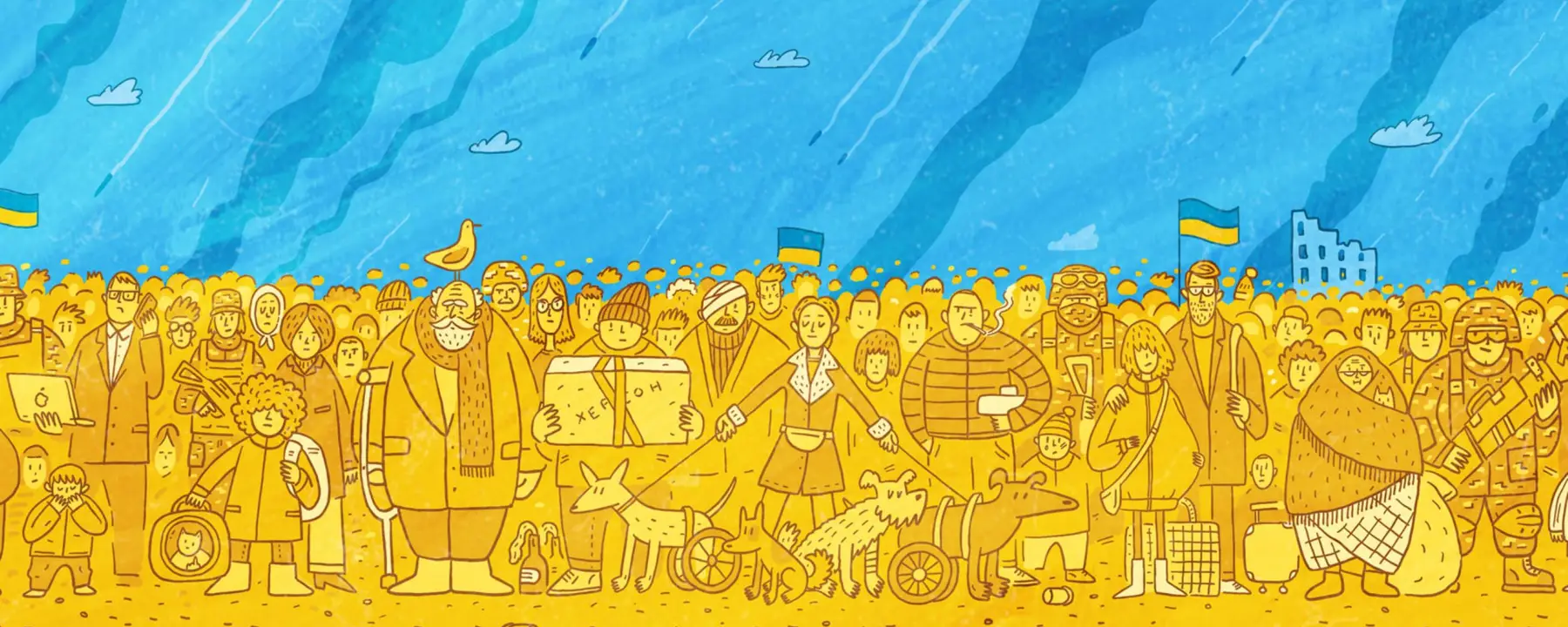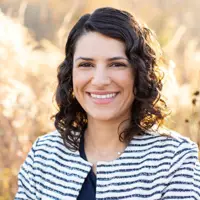RTI study identifies significant civic shifts in Ukrainian society in response to Russian aggression
Objective
To investigate and understand recent changes in Ukrainian civil society and identify the most trusted civil society actors.
Approach
We surveyed Ukrainian nationals, diaspora, and supporters and analyzed data within the context of Ukraine’s recent democratic history.
Impact
Our findings highlight the role of Ukrainian giving and volunteering in the war effort, which demonstrates growing civic engagement and trust that will benefit reconstruction.
A Study of Ukraine Civil Society During the War
In 2022, Russia launched a full-scale invasion of Ukraine. Ukrainian society – from the military to civil society and everyday citizens and united by a shared desire for freedom and democracy – fought back. Stories began to emerge of individuals and Ukrainian civil society organizations banding together and supporting one another, but there was no systematic effort to measure this phenomenon. At the time, news in the West focused on international support and the Ukrainian military, without much attention on Ukrainian civil society’s role in the war effort.
To address this, RTI undertook a study to better understand what was happening in Ukrainian civil society in 2022 by directly surveying Ukrainian nationals, along with Ukrainian diaspora and supporters, about their war-time financial contributions and volunteer activities.
Below are key findings from the study. The full study report can be accessed here.
Conducting a survey of Ukraine civil society amid an active war
Conducting research during an active war is difficult, and RTI took a unique approach that “follows the people” and the organizations, individuals, and groups they supported during the first six and a half months of the full-scale invasion.
The key elements of the study’s approach included:
- Leveraging social media platforms already used by the Ukrainian public and supporters to present the study and disseminate an anonymous online survey. These platforms included Telegram – popular in Eastern Europe – and Facebook.
- Making the survey available in Ukrainian and English and tailoring the survey campaign to resonate with people who wanted to support Ukraine. Respondents could vote for one of seven well-known non-governmental organizations (NGOs) led by Ukrainians or Ukrainian diaspora to receive a charitable donation from RTI. Razom, a New York-based NGO, received the most votes (25 percent) and the final donation.
- Asking people about their behavior during the first 6-7 months of the full-scale Russian invasion of Ukraine. Data was collected between September 2-30, 2022, from 1,105 respondents. Nearly 90 percent of responses (971 people) were Ukrainian nationals, followed by 4.6 percent (51) Ukrainian diaspora and 7.5 percent (83) supporters of Ukraine in other countries.
- Validating the results from Ukrainian nationals for any potential sampling bias with responses from a demographically representative sample of 2,000 Ukrainians collected over two weeks in September by the Kyiv International Institute of Sociology.
The rise of citizen finance and volunteering in Ukraine
The survey uncovered key trends in Ukraine that highlight large-scale mobilization of civil society including:
- Consistent donations by Ukrainian nationals to the war effort and humanitarian relief, with 86 percent supporting the country financially, and the average giver doing so 9 times in less than 6 months.
- Extensive support for the military, with 79 percent of Ukrainians supporting the country’s Armed Forces or Territorial Defense through fundraising efforts by public figures, NGOs, volunteer groups, and the government.
- Increased levels of volunteering among Ukrainians, with 42 percent donating time or expertise and over half of them doing so for the first time ever.
- High levels of trust between Ukrainians and their civil society, including NGOs and public figures.
Organizations eliciting the most support included soldiers or military units, celebrities running crowdfunding campaigns, and NGOs, particularly those that supported the military. Sixty-one percent of Ukrainians who said they volunteered did so for the first time in their lives after February 2022, highlighting an important shift in Ukraine’s culture as a greater proportion of citizens have become civically engaged.
Understanding the Ukrainian civil society landscape
The study generated a list of 77 organizations and 40 individuals that received donations from respondents. Of the Ukrainian organizations supported, 72 percent were NGOs, the majority of which were local organizations. Come Back Alive, a veteran-led NGO formed in 2014, received the largest proportion of votes (nearly 40 percent) among organizations.
Across all organizations supported, 40 percent had a specific focus on defense efforts and nearly a quarter started in 2022 in response to Russian aggression, with much of the rest having started after Russia’s invasion in 2014. The strong internal capacity of these organizations helped them rapidly raise money and scale up or pivot to support the military and emergency response. Their active social media presence was also important for fundraising and fighting misinformation.
Public figures were also successful in crowdfunding for defense and relief efforts. They included popular TV personalities, journalists, athletes, politicians, artists, famous bloggers, and volunteers and activists with large followings. Serhiy Prytula, a popular TV personality and long-time military volunteer, received the largest proportion (40 percent) of financial support from survey respondents.
The diversity of actors supported by respondents – across Ukrainian nationals to diaspora and supporters in other countries – showed just how universal support for Ukraine is across popular culture, regions, and national boundaries. Even though the Ukrainian diaspora and supporters in other countries were a small proportion of survey respondents, two of the four most-supported organizations were U.S.-based NGOs started by the Ukrainian diaspora.
Informing a new understanding of Ukrainian civil society
Survey results showed that Ukrainians have “skin in the game.” They are heavily invested in their country’s defense efforts, with nearly 80 percent having donated their own money to support the military. Ninety-nine percent of respondents did not regret donating money despite fears and reports of scammers.
Combined with the extensive giving behavior reported by Ukrainians, this indicated a high level of trust among Ukrainian nationals in their civil society and government. The substantial increase in the number of people volunteering for the first time also denoted growing civic engagement in Ukraine that is essential to strengthening the country’s progress toward democratization.
Strong levels of trust; speedy, effective mobilization of civil society; and increased levels of civic engagement point to democratic strengthening and capacity in Ukraine that is already playing an important role in the country’s reconstruction.
Ukraine’s democracy has been growing, largely in response to Russian aggression. Ukrainians are united in their desire to remain democratic and free. As the international community determines how best to support Ukraine in the months and years ahead, this study provides key insights into civil society’s critical role in Ukraine that should be considered.
View the full report here.

Ukraine's Other Army
Ukrainians, the diaspora, and those who support them find ways to meaningfully contribute to the war effort through unprecedented levels of giving and volunteering




